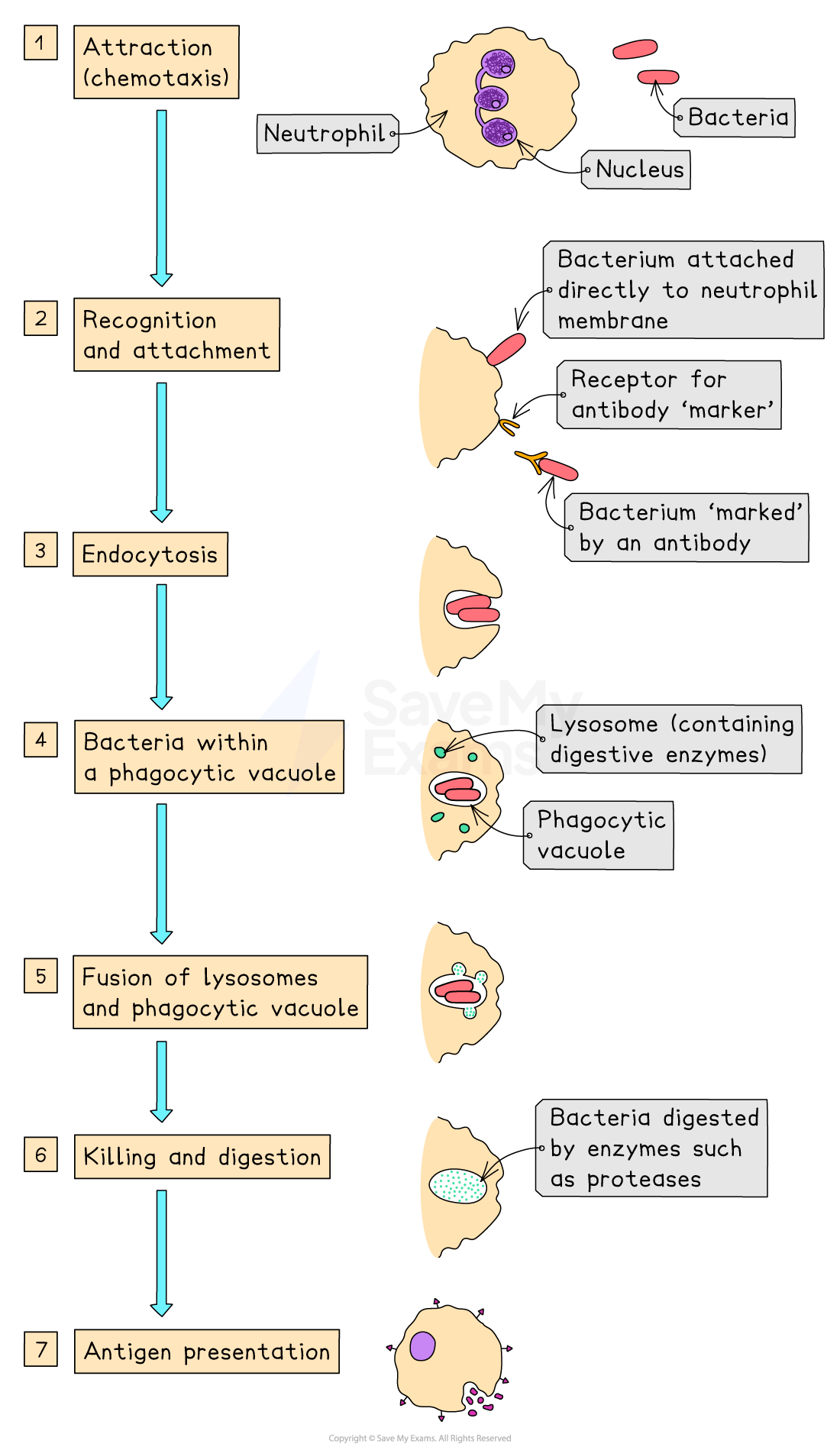Phagocytosis (AQA A Level Biology): Revision Note
Exam code: 7402
Phagocytosis
Phagocytes are white blood cells that are produced continuously in the bone marrow
There are two main types of phagocyte, each with a specific mode of action:
neutrophils
macrophages
The role of phagocytes is to recognise and engulf pathogens; this process is known as phagocytosis
Phagocytosis is an example of a non-specific immune response
The process of phagocytosis
Chemotaxis – Chemicals from pathogens or damaged body cells (e.g. histamines) attract phagocytes to the infection site
Recognition and attachment
Phagocytes detect non-self antigens on pathogens using receptor proteins on their membrane
Receptors bind to antigens on the pathogen’s surface
Engulfment – The phagocyte’s membrane extends around the pathogen, forming a phagocytic vacuole (this is an example of endocytosis)
Phagosome formation – The vacuole containing the pathogen is now called a phagosome
Phagolysosome formation – The phagosome fuses with a lysosome, forming a phagolysosome
Digestion – Lysozymes (digestive enzymes) are released to hydrolyse the pathogen (e.g. breaking down bacterial cell walls)
Antigen presentation – In macrophages, digested pathogen fragments may be displayed on the cell surface to activate the specific immune response


Unlock more, it's free!
Was this revision note helpful?
